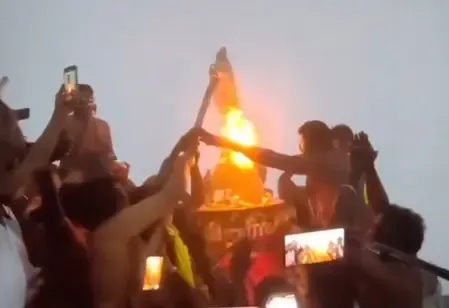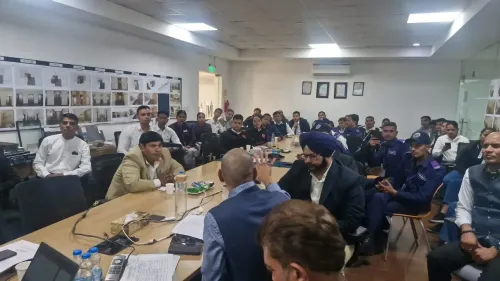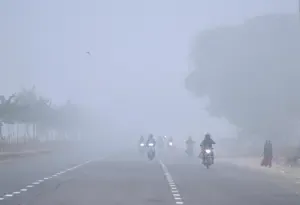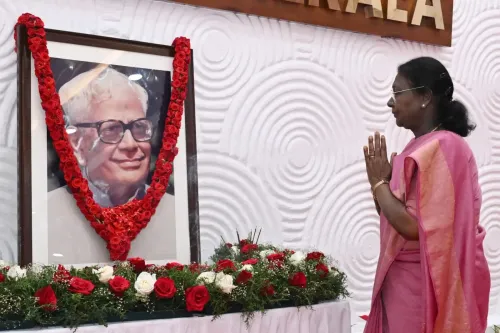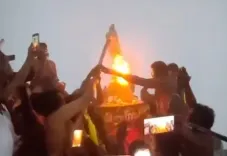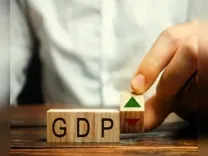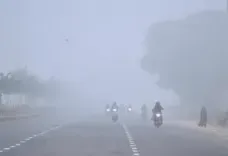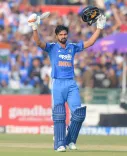Will the Supreme Court Lift the Crackers Ban for Diwali?
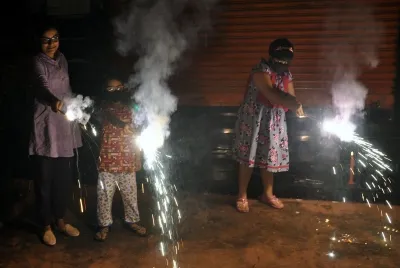
Synopsis
Key Takeaways
- The Supreme Court is considering lifting the firecracker ban for Diwali.
- Green firecrackers may be permitted under strict regulations.
- Public health and pollution are key factors in the decision-making process.
- Licensed sales and manufacturing are being emphasized.
- Previous bans have been poorly enforced in Delhi.
New Delhi, Oct 10 (NationPress) The Supreme Court has set aside its ruling concerning the Delhi government's request for permission to utilize certified green firecrackers for celebrating Diwali in the national capital.
A panel comprising Chief Justice of India B.R. Gavai and Justice K. Vinod Chandran has hinted at a temporary lifting of the ban for the festival, stating: "For the time being, we will allow the ban to be lifted during Diwali."
During the proceedings, Solicitor General Tushar Mehta assured the apex court about several safety measures, including that sales would be executed solely through licensed vendors and only authorized manufacturers would be permitted to sell.
Previously, on September 26, the CJI Gavai-led bench had provisionally allowed certified manufacturers of green crackers, who possess permits from the National Environmental Engineering Research Institute (NEERI) and the Petroleum and Explosives Safety Organisation (PESO), to produce green crackers in the Delhi-NCR region.
However, the apex court instructed the manufacturers that, pending further directives, they were to refrain from selling their green crackers in designated prohibited areas.
Earlier in April, a bench of Justices Abhay S. Oka (now retired) and Ujjal Bhuyan expressed that imposing a ban on crackers for just 3-4 months each year is ineffective, and no allowances, even for green crackers, should be made.
The court noted that air pollution levels had been critically high for an extended period, asserting that unless it could be demonstrated that the pollution caused by green crackers was minimal, no relaxations would be granted.
It emphasized that the right to health, which is a fundamental aspect of the right to life as guaranteed under Article 21 of the Constitution of India, encompasses the right to reside in a pollution-free environment.
In January of this year, the Supreme Court had prolonged the implementation of orders issued by the Uttar Pradesh and Haryana governments that mandated a comprehensive ban on firecrackers in the NCR area. The court extended the ban, which was effective until January 17, until further notice.
Previously, the apex court had indicated that the bans already imposed by the Delhi and Rajasthan governments would only take effect when other states enforced similar restrictions.
After being informed that Haryana had allowed the use of green crackers while Rajasthan had instituted a total ban on firecrackers in the NCR region, the apex court directed the governments of Uttar Pradesh and Haryana to impose a ban on firecrackers in alignment with the restrictions in Delhi.
In November of last year, following Diwali celebrations, the Supreme Court remarked that the firecracker ban was poorly enforced in the national capital and reprimanded the Delhi government for its lack of action. It requested an affidavit from the Delhi government and the Police Commissioner detailing the measures taken to enforce the ban. The apex court suggested sealing the premises of firecracker sellers and enforcing a ban on importing firecrackers from neighboring states.


